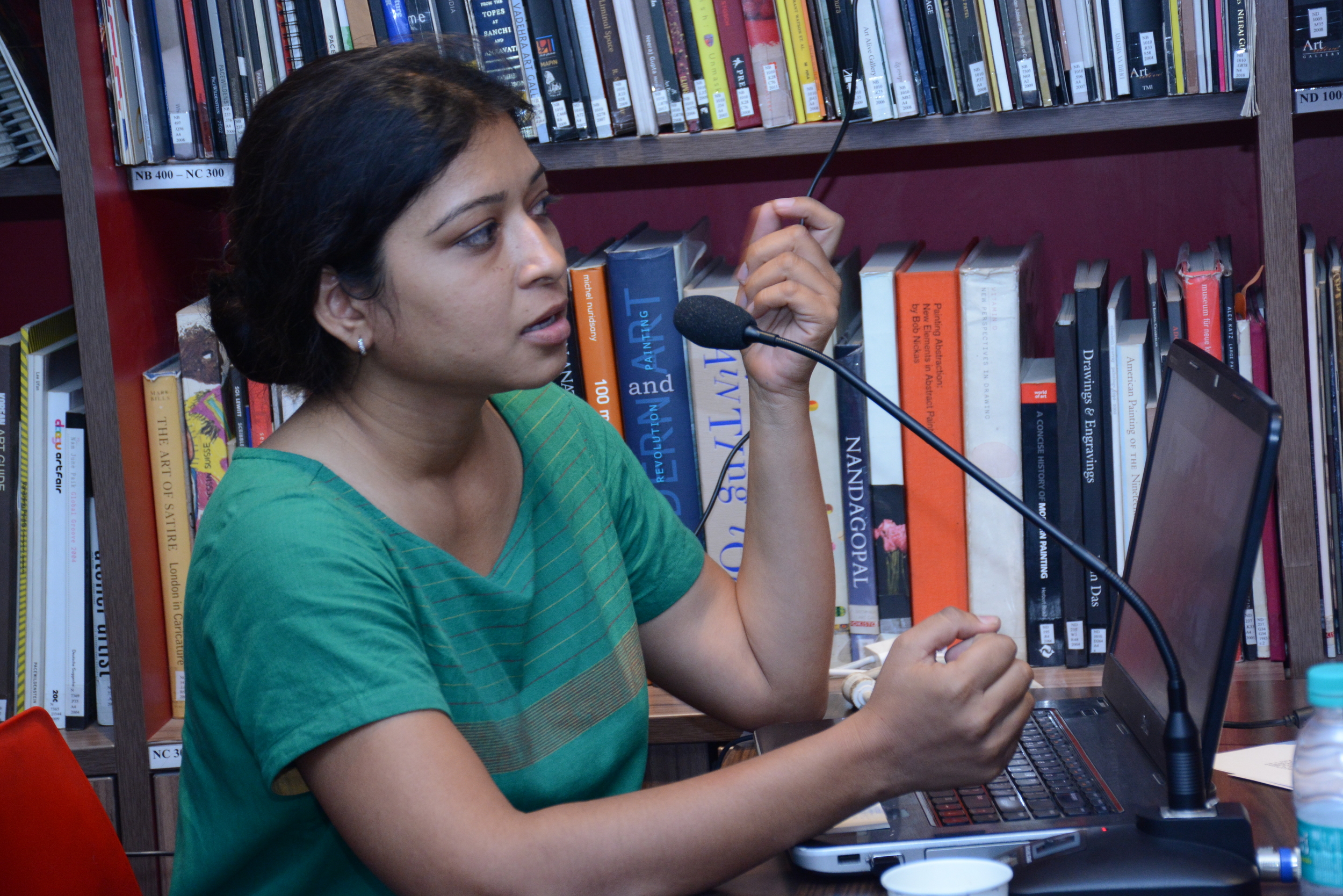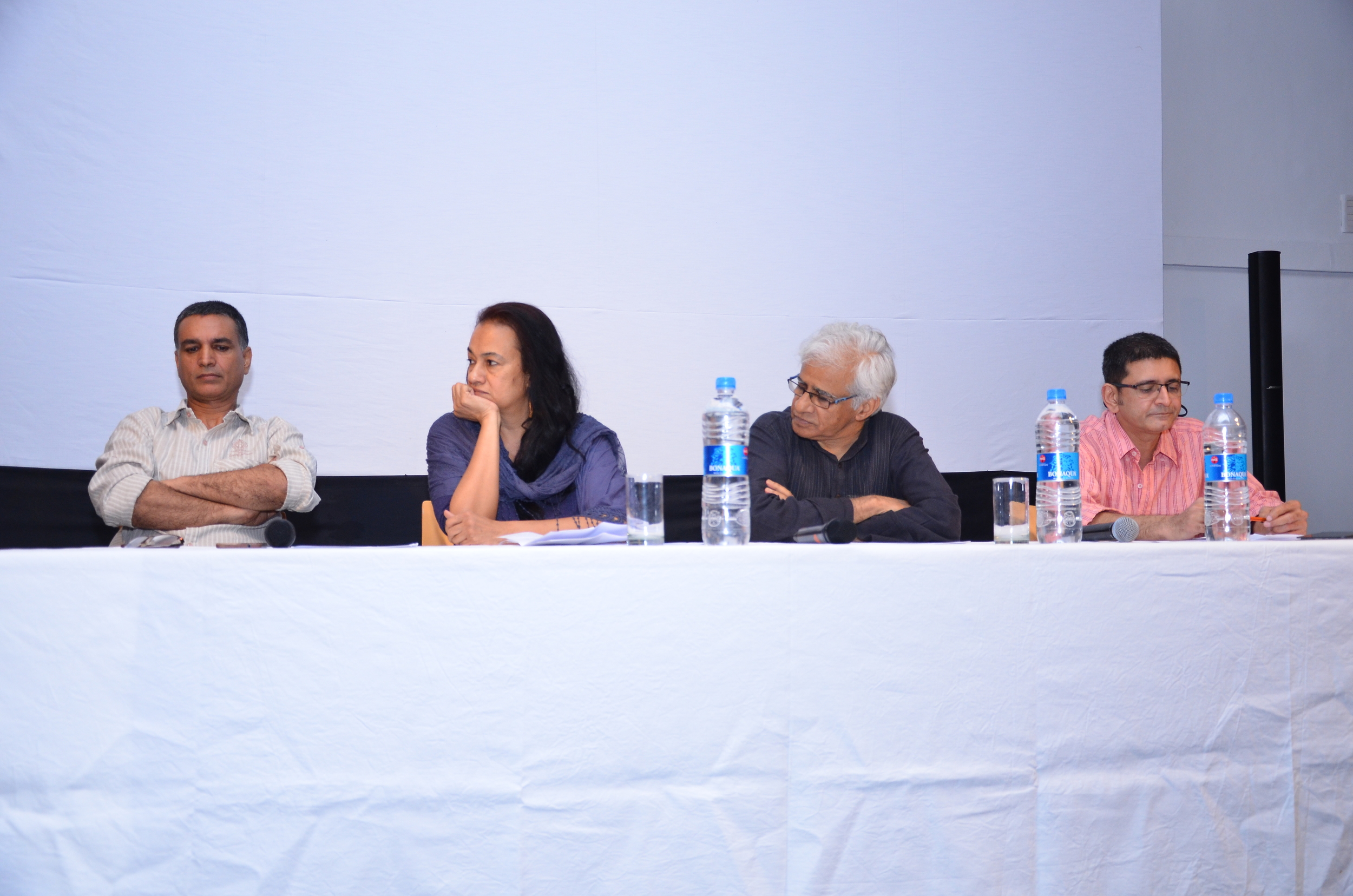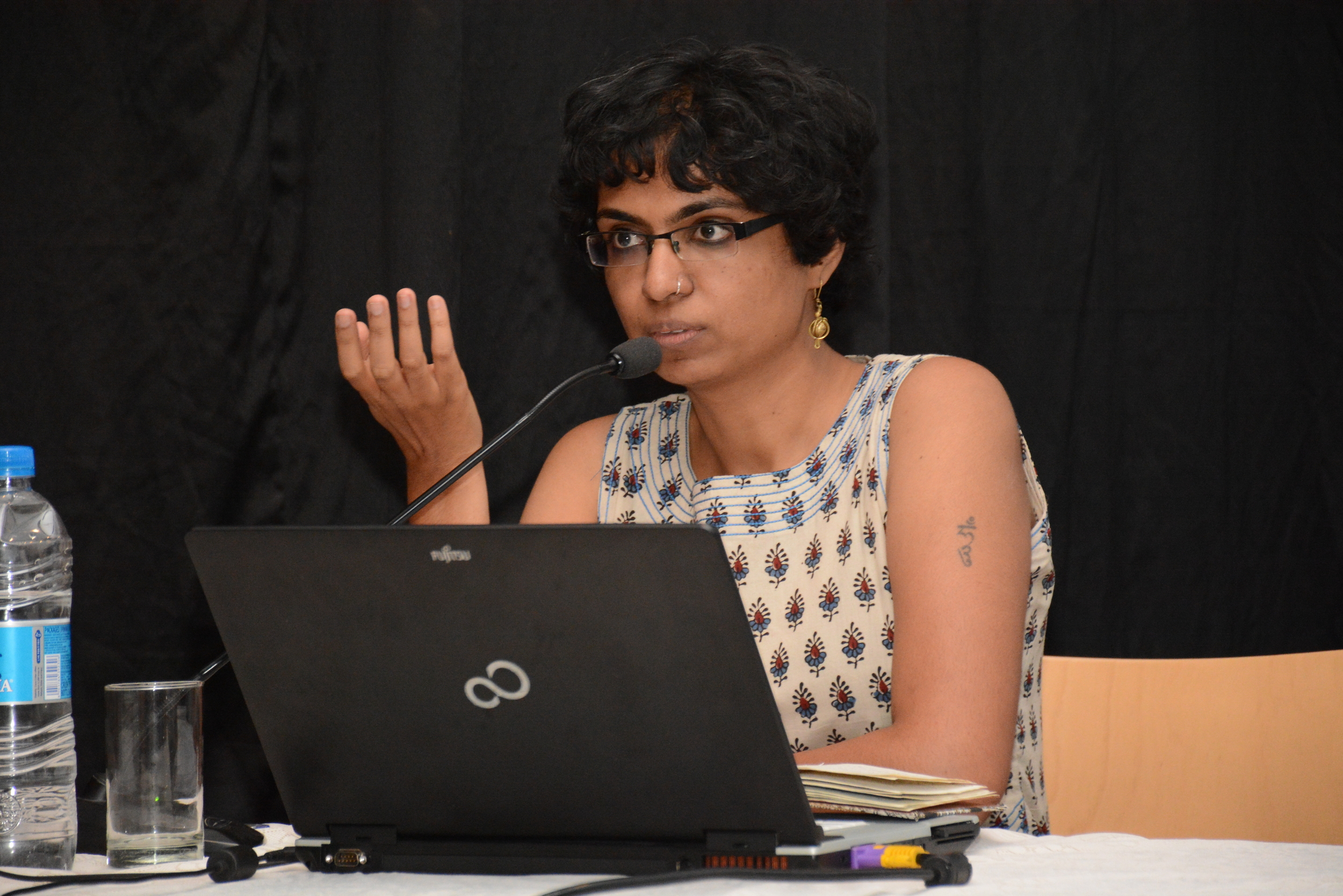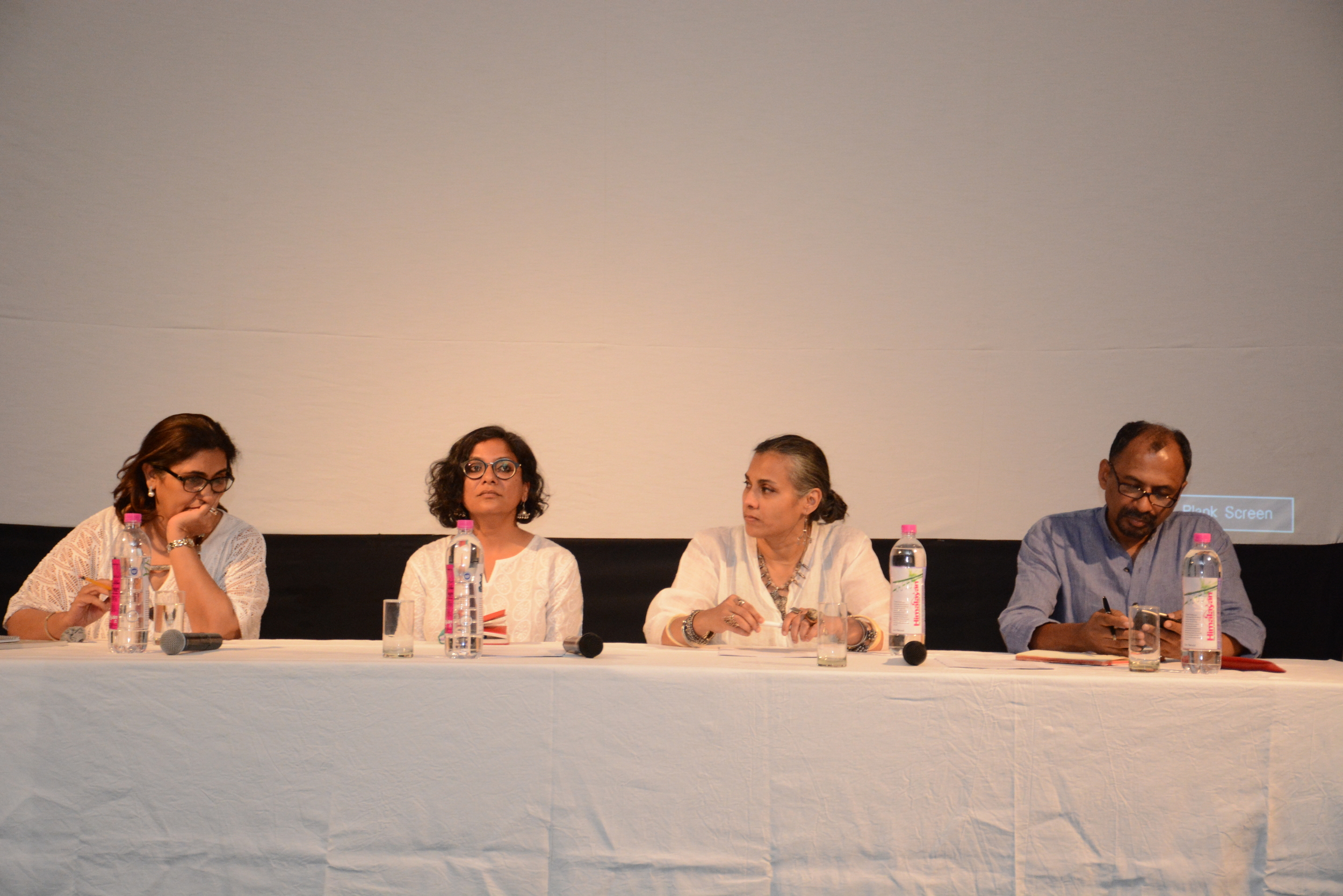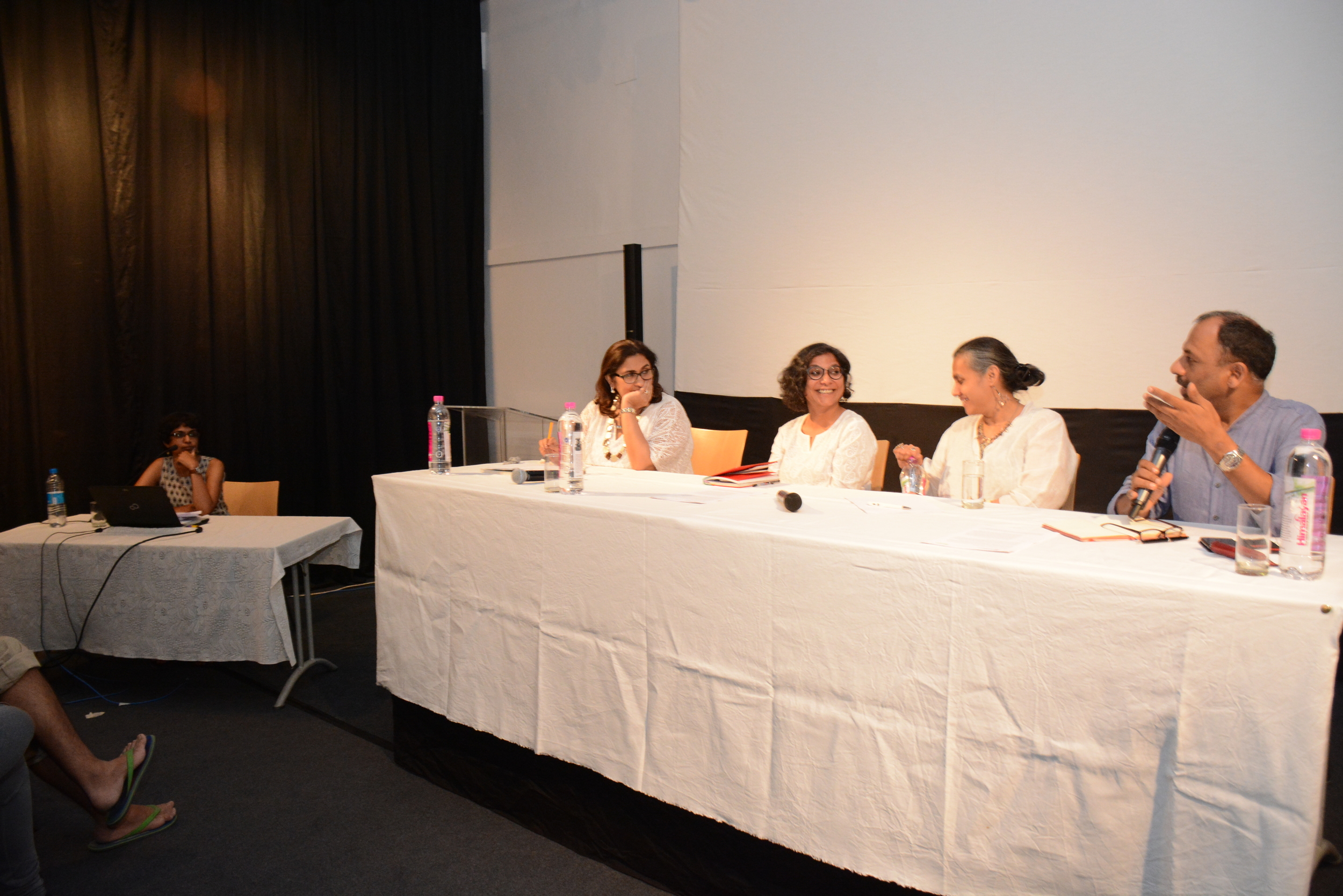Public Art: artists and their practiceS
04 April 2016 | FICA Reading Room, D-42 Defence Colony, New Delhi
05 April 2016 | Goethe Institut – Max Mueller Bhavan, 3 Kasturba Gandhi Marg, New Delhi
The Foundation for Indian Contemporary Art's (FICA) two-day seminar on Public Art: artists and their practice marked FICA’s eight years of supporting the Public Art Grant programme. FICA would like to thank Max Mueller Bhavan for partnering with us for the second day of the seminar.
The seminar was imagined as a means to, firstly, engage with larger questions on the making of public art, roles and responsibilities of the artist and institution, and the imagining of public spaces in India, and secondly, as a means to look at public art practices and its discourse in relation to the changing morphologies of Indian cities. The first part of these enquiries were addressed through the scope of the projects that FICA has supported under its Public Art Grant program over the last eight years. The second set of ideas were explored under the gambit of the ongoing archival-research project undertaken by Noopur Desaiin which she enquires about public art practices and the corresponding growth of the urban centres in India, and the ‘social turn’ in the discursive space of contemporary art.
Event schedule:
4th April 2016 | Monday | FICA Reading Room (closed-door session)
While there is the deep seated artistic need to initiate and engage in an exercise that has the potential to collectively transform shared spaces and social relationships, there is now an even more urgent need to clarify the position of the artist engaged in such tasks in relation to the efforts of activists, ecologists, archivists, educators and social workers. The presentations on the first day will be an introspective exercise by the grantees who will use their presentation to think about their own position vis-a-vis that of their ‘publics’ and the implications of their interventions. The first day sessions are primarily for review purposes, and will be for invited observers only.
10:30 Tea
11:00 – 11:15 Introduction to the seminar by FICA
11:15 – 13:15 Panel 1: Sreejata Roy, Samudra Kajal Saikia, WALA, Lochan Upadhyay
13:15 – 14:00 Lunch
14:00 – 16:00 Panel 2: Indrani Baruah, Mrugen Rathod, Shweta Bhattad, Wanphrang Diengdoh
05 April 2016, Tuesday | Goethe-Institut / Max Mueller Bhavan, 3 Kasturba Gandhi Marg, New Delhi
Day two consists of presentations and discussions with artists who have long engagement with public art practice. The panels have been framed by Noopur Desai as a part of her ongoing research under the Ila Dalmia FICA Research Grant 2015. The project titled 'Formulating Dialogical Art: Archiving Public Art in India' engages in documenting and theorizing public art practices in India since 1990s and focuses mainly on urban spaces and metropolitan cities. The project aims to trace the genealogies and histories of art interventions in urban public spaces that have acquired new forms while challenging the dominant forms of artistic production. While examining the 'social turn' in contemporary art, this project address important theoretical questions to public art in India including censorship, spectatorship, aesthetics, artistic processes and also, critical writing about public art.
10:30 Tea
11:00 – 11:30 Introduction: Questions of Public Art by Noopur Desai
The introductory session will present a framework within which different issues about public art practices will be put forth for deliberation. While responding to the urgencies of the contemporary society and art making practices, it is important to see how artists are engaging with various kinds of public art practices in the context of the changing morphologies of major cities in India. What are the reasons behind this 'social turn' in art? How do we contextualize different aspects of public art such as participation, collaboration, creative processes, utilitarian nature, inter-subjectivity? These transformations have contributed to the art discourse but at the same time, have raised questions about what constitutes these art practices. Similarly, the questions and concerns of representation, culture and identity, politics of space within the cartography of a city will be central to this presentation while raising the issues of public art and the city, urban – non-urban geographies and spectatorship.
11:30 – 13:30 Panel 1: Politics of space and the City.
Inder Salim, Vivan Sundaram, Tushar Joag, Vasudha Thozhur
Moderated by: Ravi Sundaram
The transformations of metropolitan cities in the last two decades in terms of cultural politics, identity politics cultural politics, identity politics, development policies, degeneration of natural resources have lead artists to take a critical stance on their art practices. The question is how do we contextualize these art practices in the urban scenario in the midst of conflicting ideological positions in terms of cultural politics, cultural identities and politics of space. How this politics of space in these cities have shaped their art practice and strategies that are employed to their nuanced processes of art making? In addition, one has to look at fluctuating and dynamic ideas of public sphere and public space in Indian urban context and how do artists negotiate these public spheres and public spaces? The panel 'Politics of Space and the City' will address these questions through artistic engagements of participating artists.
13:30 – 14:15 Lunch
14:15 – 16:00 Panel 2: (Un) Framing Public Art
Pooja Sood, Ravi Agarwal, Sharmila Samant, Aastha Chauhan
Moderated by: Noopur Desai
This panel will focus on the practice of participation and dialogue and will discuss various methods and approaches that contemporary artists work with in terms of socially-engaged art practice. The deliberations in this panel will aim at critically investigating frameworks which will help us define and conceptualize public art. What is the relationship between artists, curators and audiences in different contexts and, production and structure of their projects? What role do different players perform in public art criticism and evaluation? It would also be interesting to discuss the role of public in shaping the ideas about public art in this session including questions concerning figure or role of the artist or author, aesthetic value of these processes, role of the curator and ethics of participation among others.







